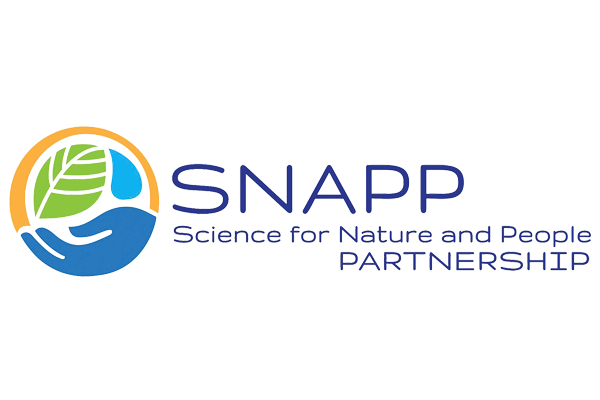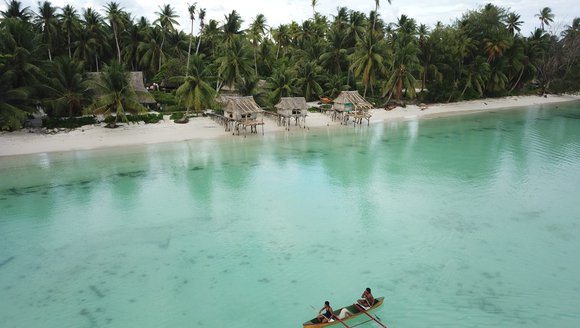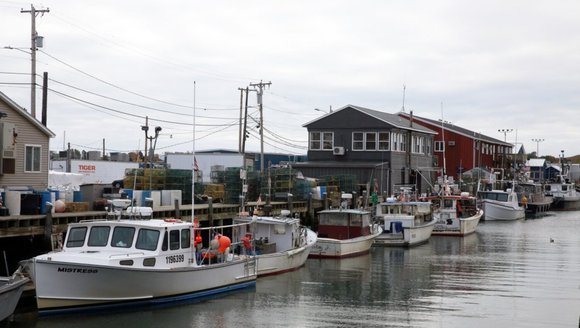SNAPP: Climate Resilient Fisheries Working Group
Identifying and operationalizing resilience in fisheries.
Climate change is altering fish stocks and the flows of benefits derived from fisheries. Fishery management systems need to be designed to support fisheries resilience in the context of ecosystem change and uncertainty. This working group draws together experts from around the world to identify key features of resilience and approaches to operationalize them in a diverse range of fishery management systems.
Project Goals:
- Identify key features of climate-resilient fisheries and apply them to fishery management systems.
- Develop a decision-making support tool to help managers identify resilience capacity and needs.
- Work with leaders of fishery management organizations to tailor results and products for global, national, and regional applications.
As climate change affects the productivity and distribution of fish stocks, it also alters the income, job opportunities, and nutritional benefits derived from fisheries. The nature of these impacts and how they affect the flows of benefits is mediated by the management context within which fisheries operate. Most fishery management systems rely on historical experiences to guide management, but effective fisheries management under climate change will require responsive, adaptive systems that confer resilience and buffer climate impacts.
This SNAPP working group will play a key role in developing guidance on management approaches, processes, and tools that can operationalize and implement resilience principles in fisheries around the world. We will bring fisheries experts and practitioners from nearly every continent together to address three questions:
- What key features make fisheries inherently resilient to the effects of climate change?
- What approaches and tools confer resilience for fishery systems affected by climate change?
- How can practitioners diagnose system resilience and identify ways in which resilience can be supported in order to enhance sustainability, economic benefits, and human well-being and equity?
We've developed a decision-making support tool to help managers find information, examples, and recommendations relevant to a diverse range of fishery types and management approaches, which you can explore above.
Climate-Resilient Fisheries Planning Tool
Developed by this SNAPP working group, and created with fishery participants, community leaders, managers, NGO partners, scientists, and other stakeholders in mind, this tool helps users navigate a six-step process to identify actions that can enhance any fishery’s climate resilience. The Climate-Resilient Fisheries Planning Tool helps users identify potential climate impacts to the fishery system and evaluate ecological, socio-economic, and governance attributes that can best strengthen climate resilience within the specific context of their fisheries and regions.
Project Team
-
![the staff photo for Kathy Mills]()
-
![]()
-
![]()
Andrew Pershing, Ph.D.
Adjunct Scientist & Former Chief Scientific Officer
-
![A portrait of a woman smiling.]()
-
![Portrait of a man smiling.]()
Pat Sullivan, Ph.D.
Cornell University
Project Sponsor

This project is funded by SNAPP: Science for Nature and People Partnership. SNAPP is a partnership of The Nature Conservancy, Wildlife Conservation Society and the National Center for Ecological Analysis and Synthesis at the University of California, Santa Barbara. This SNAPP team is part of a cohort funded by the generosity of the David and Lucile Packard Foundation to address the theme of Oceans, Climate and Equity.
Read More
-
Supporting climate-resilient fisheries during the UN Decade of Ocean Science
A new “Food for Thought” study, which we contributed to and which has been published in ICES Journal of Marine Science, outlines FishSCORE’s strategies and …
Press Clips
-
Portland’s historic Union Wharf being sold, preserved for maritime use
Fishermen and city officials praise the agreement between the Gulf of Maine Research Institute and the Poole family, saying the organization is securing the future …
Press Clips
-
Windjamming on the Warming Gulf of Maine - Eos
Living in Geologic Time: A sailing venture reveals economic upheaval along Maine’s enduring coast.
Press Clips
-
Staff Perspectives: Seafood, Sustainability, and Climate Change
The word "sustainability" can mean different things to different people, depending on their varying contexts or experiences. At GMRI, we approach the concept of sustainability …
Perspectives



